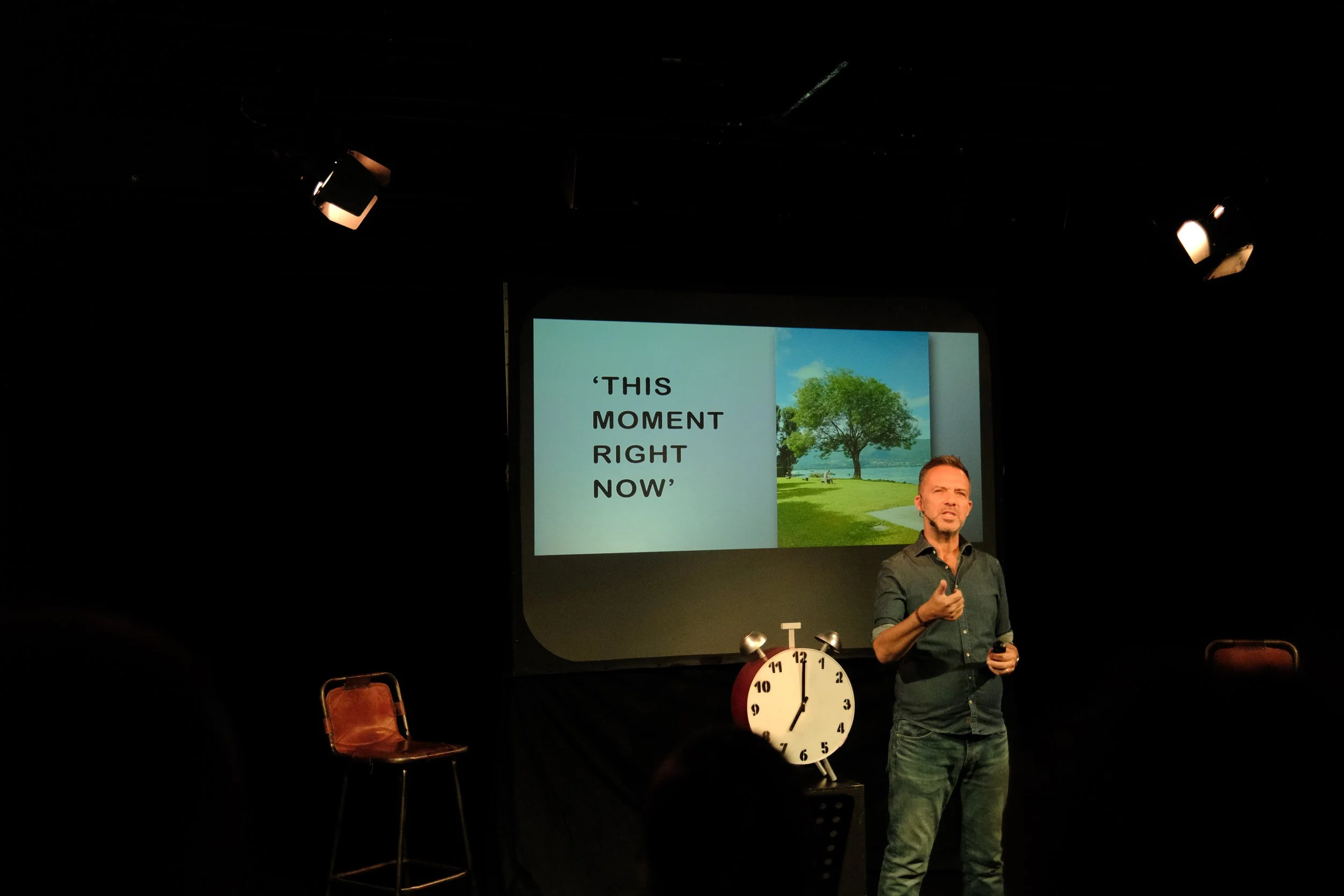Wake Up! Ten lessons on being alive
Last Friday evening at 7pm, the lights in the Dixon Studio went down and I walked on stage to deliver 'Wake Up!' - arguably the most important talk of my life. I'd toyed with the idea of doing a 'one man show' for over a decade. But when I got the cancer diagnosis last year it acted as a catalyst. It was a case of if not now, when?
There'll be a recording of the show coming to YouTube soon. In the meantime people have asked, what are the ten lessons on being alive that I shared on Friday?
Listen to your beating heart. And act on it. Most of us have a crazy dream or a burning desire inside our minds or hidden in the pages of our notepads. I’d had the idea to do a one man show for over a decade. Cancer was the catalyst. But when something's important to us, why wait?
Put on a new pair of glasses. Experiencing a life-changing event can bring things into sharp focus, like putting on a new pair of glasses. It gets us to tune in and be more aware. What can you notice about the world around you that you’ve never seen before? What can heightened clarity show you about what’s important to you?
Know it’s only a matter of time. Like my friend Kish reminded me, tragedy and trauma will likely come to all of us: ‘it’s only a matter of time.’ And how we spend our lives, that too, is simply a matter of time. We are all gifted 24 hours a day - how we spend it is up to each of us.
Look for the good times. Optimism is like a muscle you can exercise and when you keep scanning your daily life for positivity, you’ll see more of it. Keep a daily Good Times list. Find joy in unremarkable things. Look for the light.
Follow your weirdness. We all have something that’s a bit odd about us. One of my oddities is that I’m super intentional about my coffee and will often go completely out of my way to have a decent cup in a beautiful spot. Rather than find our weird habits embarrassing, let’s own them! And use them as a compass for getting back on track when life gets challenging.
See life as a journey. If we go travelling, we expect to encounter some uncertainty. Visiting a new destination, we can’t predict exactly what the experience will be like or the weather. And we’re okay with that! Reframing life, not as a linear path but as a journey, is a way to accept all the twists and turns along the way.
Celebrate aliveness. Some of the most life-affirming moments can be found in the most mundane, everyday experiences. Slowing down to pay attention, being present and cherishing the moment, being grateful for the small things: these are ways to cherish the moments that make up the fabric of your life.
There is no playbook. When we encounter a crisis or face adversity, it comes out of the blue with no playbook to show us how to react or know what to do. But then playbooks don’t exist when we start our careers or commit to a life-partner or quit our job to start our own business. We’ve all been through difficult stuff before. So can we tune into the courage and resilience we had in all those other no-playbook experiences to help us now?
A roadblock is not the end. Situations out of our control put up roadblocks. When a relationship ends or a health crisis looms or we lose our job - these can feel like the end of the road. But often roadblocks don’t stop us, they force us instead to find a different path - a path marked ‘You’.
Every choice matters. Big choices bring with them obvious gravity. Moving house. Finding a new job. But the micro choices we make every day - where to sit in a coffee shop, what street to walk down to get to our next meeting - are just as important. We have moments full of rich life-changing potential everyday. Choose carefully ;)
I'm planning a date in January 2025 to deliver 'Wake Up!' in central London for friends. More details on that later this year. And throughout 2025 it will be available as a 40 minute talk for companies, organisations and conferences.
Here’s a teaser for the live recording

